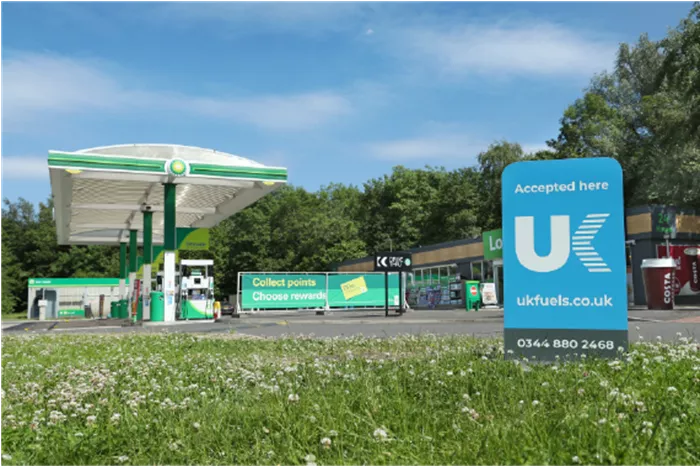Fuel is an essential component of modern society, powering transportation, industry, and homes across the United Kingdom. Understanding the sources and supply chains of fuel is crucial for ensuring energy security and sustainability. In the UK, fuel primarily originates from a complex web of domestic production, imports, and refining processes. This article explores the intricate pathways through which different types of fuel reach consumers in the UK, examining the roles of domestic resources, international trade, refining capabilities, and the evolving landscape of energy policy.
Introduction to UK Fuel Sources
The United Kingdom relies on a diverse range of energy sources to meet its fuel demands. Historically, the UK was a significant producer of crude oil and natural gas from offshore fields in the North Sea. However, as these reserves have matured, the country’s energy mix has evolved to include a broader array of sources. Today, the primary sources of fuel in the UK include crude oil, natural gas, biofuels, and imports of refined petroleum products.
Crude Oil Production and North Sea Resources
The North Sea has been a cornerstone of the UK’s energy production since the discovery of oil and gas reserves in the 1960s. The region’s oil fields, such as Brent and Forties, have historically contributed a substantial portion of the UK’s crude oil supply. However, as these fields have matured, production has declined. The UK government and oil companies have employed advanced extraction techniques to maximize recovery from existing fields while exploring new opportunities in frontier areas.
Natural Gas Supply and Imports
Natural gas plays a vital role in the UK’s energy mix, serving as a fuel for electricity generation, heating, and industrial processes. The UK was once a net exporter of natural gas, thanks to abundant reserves in the North Sea. However, declining production has led to increasing reliance on imports via pipelines from continental Europe and liquefied natural gas (LNG) shipments from global markets. The development of import infrastructure, such as LNG terminals and interconnectors, has bolstered the UK’s energy security but also exposed it to international market dynamics.
Refining and Petroleum Products
Refineries in the UK play a critical role in converting crude oil into various petroleum products, including gasoline (petrol), diesel, jet fuel, and heating oil. The country’s refining capacity has diminished over the years due to economic factors and environmental regulations, leading to a greater dependence on imports of refined petroleum products. The refining sector continues to adapt to meet stringent environmental standards while optimizing production to align with shifting consumer demand and regulatory requirements.
Biofuels and Renewable Sources
In recent decades, there has been a growing emphasis on renewable and sustainable sources of fuel. Biofuels, derived from organic materials such as crops and waste, are increasingly blended with traditional fossil fuels to reduce greenhouse gas emissions and enhance energy security. The UK government has implemented policies to promote the use of biofuels in transportation, including mandates for renewable content in gasoline and diesel.
See also: Will The Price Of Fuel Go Down UK?
International Trade and Supply Chains
The UK’s fuel supply chains are intricately connected to global markets through trade and logistics networks. Imports of crude oil, natural gas, and refined petroleum products supplement domestic production to meet demand. The country’s energy security hinges on stable international relationships, diversified supply sources, and robust infrastructure for transporting and storing fuel.
Energy Policy and Future Directions
Energy policy in the UK is shaped by a combination of environmental goals, economic considerations, and energy security imperatives. The government has committed to reducing carbon emissions and transitioning towards a more sustainable energy system. This transition includes increasing investment in renewable energy sources such as wind, solar, and biomass, as well as promoting energy efficiency measures and electric vehicles.
Challenges and Opportunities
The UK faces numerous challenges in ensuring a secure and sustainable fuel supply. These include geopolitical uncertainties affecting global energy markets, the need for investment in aging infrastructure, regulatory complexities, and the transition away from fossil fuels towards renewable alternatives. However, these challenges also present opportunities for innovation, job creation, and economic growth in the burgeoning green energy sector.
Conclusion
Understanding the sources and supply chains of fuel in the UK is essential for navigating the complexities of modern energy systems. From historic offshore oil fields in the North Sea to renewable biofuels and global trade routes, the UK’s fuel landscape is diverse and evolving. By embracing innovation, sustainability, and strategic investments, the UK can secure a resilient energy future while reducing its environmental footprint. Continued collaboration between government, industry, and stakeholders will be crucial in shaping policies that promote energy security, economic prosperity, and environmental stewardship for generations to come.
Related topics:
How Much Fuel Can You Legally Transport UK?

